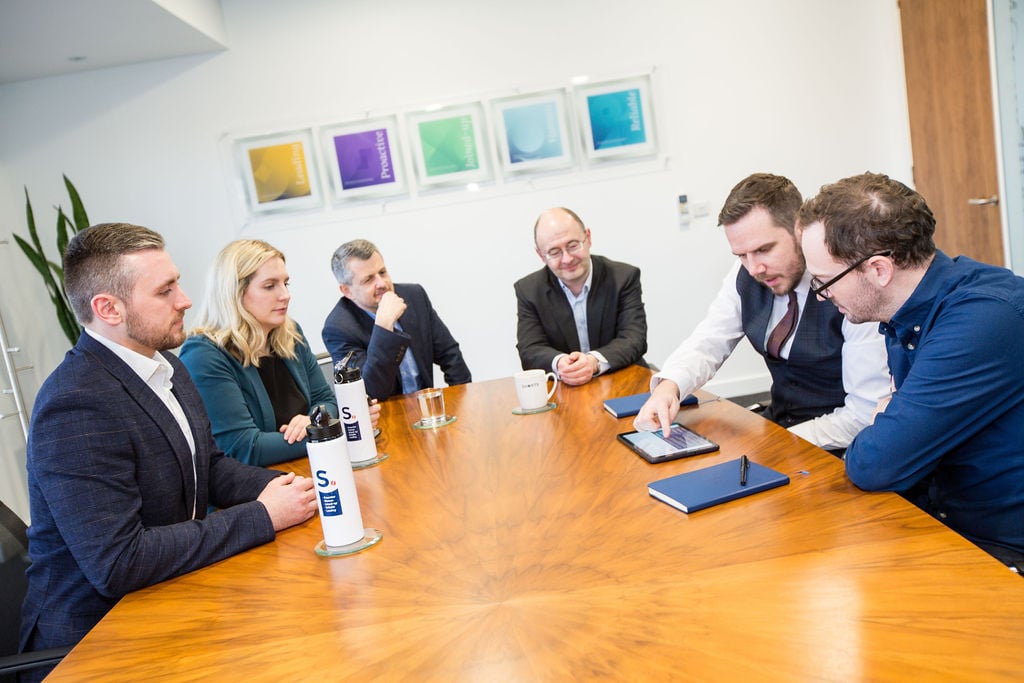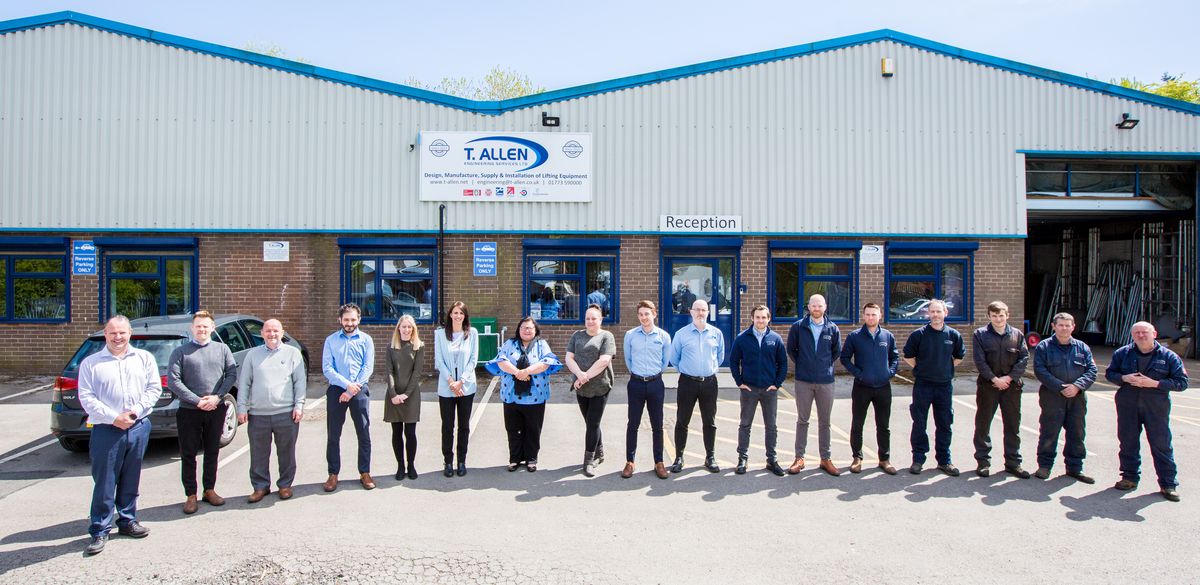
An Employee Ownership Trust is an exciting, tax efficient exit strategy that is becoming more and more popular. The numerous benefits, including tax-free staff bonuses up to £3,600, exemption from capital gains tax, and IHT benefits, are well documented, but what happens after the transaction is complete?
With the help of Rob Brown, host of the Accounting Influencers podcast, we caught up with Andrew Mills, Director at T Allen Engineering to reflect on the company’s EOT transition one year later.
Shorts helped Andrew sell the business to an Employee Ownership Trust around a year ago, which you can read all about in our in-depth client case study.
The following text features excerpts from a recent conversation between Andrew Mills of T Allen Engineering, Rob Brown, and Andy Ryder and David Robinson of the Shorts team. You can watch the conversation in full below.
How has the EOT been now you’re a year down the line?

Andrew Mills:
“It’s been absolutely fine. Everybody is now used to the idea of employee ownership, and it's very much business as usual. Obviously, the initial announcement was a big deal for everyone because I had been the sole shareholder of the business. It was well received by the employees who feel like an even greater part of the business than they already were!”
How did the customers react to the EOT?
“I didn’t want the key customers to find out about the sale second-hand, so I contacted them immediately. They were very interested in it, and I explained that the company was still financially viable, and that it could still function as normal. They were all very enthusiastic about it and offered their congratulations. It certainly hasn’t negatively affected any of the business we are getting in. Once again, it’s really just business as usual.”
Are the experiences of T Allen typical for EOT transactions?

Andy Ryder:
“Generally, an EOT is a really positive experience, but there are some things to look out for, based on our experience with other clients. Employee engagement is very important. This means managing their expectations, ensuring communication is effective, and making sure they know exactly what is going on.
 David Robinson:
David Robinson:
“They tend to have similar angles – they all value legacy and succession very highly. Andrew’s disposal was quite typical, and was done for the right reasons, for the right type of business.”
How did you engage your team with the new responsibilities?
Andrew Mills:
 “I had to get people to step up and take on responsibilities to fill the gap at the top. We had two more directors appointed when the EOT came through. These were trusted members of staff who are there on merit. I have a five-year plan where I will be phasing myself out of the business, and the EOT allowed me to look at the succession plan properly and manage it accordingly.”
“I had to get people to step up and take on responsibilities to fill the gap at the top. We had two more directors appointed when the EOT came through. These were trusted members of staff who are there on merit. I have a five-year plan where I will be phasing myself out of the business, and the EOT allowed me to look at the succession plan properly and manage it accordingly.”

What do businesses need to know to get these deals right?
 David Robinson:
David Robinson:
“Potential sellers will need to ensure they understand deferred consideration. The disposal works where a lot of the consideration is paid over time – future profits of the business will be gifted into the trust, and then paid out to the seller as deferred consideration. It might take a little while for the deferred consideration to be paid off, but the employees will collectively benefit from the long-term success of the business through bonuses, as surplus cash eventually will only really be able to be paid to employees.”
What can happen if circumstances change post-transaction?
 Andy Ryder:
Andy Ryder:
“The key thing post-transaction is understanding that circumstances can change. We’ve seen this a few times post-transaction. If the owner is getting a deferred payment over a period of time, and their personal circumstances change (such as through ill health). Then they may look to refinance that deferred. They may look for external bank finance, which can accelerate the deferred for the seller, but also works for the business because it can be restructured in a way to give the business more certainty over its cashflow and ability to invest.”
Any advice you would give to business owners considering an EOT?
 Andrew Mills:
Andrew Mills:
“It’s all about what’s right for you. It’s about taking the emotion out of the decision and looking at what you want to achieve. The biggest headline is the tax benefit of an EOT, but for me it was really about legacy I wanted to leave at the business. I could stay on as a trustee of the business, which was really important. It ensures that the business is now protected for many, many years.
“As a sole shareholder there was always a question about the endgame of the business, and what would ultimately happen to it. The EOT has taken that uncertainty away.
“There have been no negatives to it – everyone now knows what the plan is going forward. Key staff have been incentivised, and it allows me to be welcomed back to T Allen for a cup of tea any time.”
Further EOT reading

Adam Ames
During my career, I have gained an experience and an appreciation of the many issues and opportunities faced by businesses during all market conditions and economic cycles, which I use to provide invaluable advice to clients across all areas of corporate finance including EOTs, MBOs, acquisitions, disposals and finance raising assignments.
View my articlesTags: Corporate Finance, EOT
